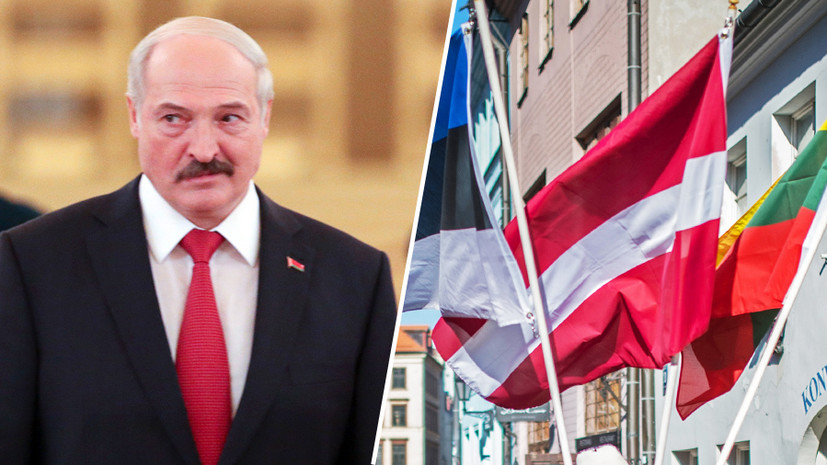Lithuania, Latvia and Estonia have banned the entry of President of Belarus Alexander Lukashenko and 29 other officials of the republic.
The Estonian Foreign Ministry said that we are talking about people who "play a key role in falsifying election results in Belarus and in using violence against peaceful demonstrators."
“Today, August 31, the Ministry of Foreign Affairs published a list of Belarusian officials who are prohibited from entering in accordance with the law on international sanctions,” the ministry said in a statement.
They clarified that a five-year ban on entry into the country will apply to Lukashenka, as well as the Minister of Internal Affairs, Minister of Justice, Prosecutor General of Belarus, officials of the presidential administration, members of the Central Election Commission and law enforcement agencies of the republic.
“With the sanctions, we show that we take human rights violations in Belarus very seriously.
At the same time, we consider it important not to punish the people of Belarus, ”said Estonian Foreign Minister Urmas Reinsalu.
He added that Estonia supports "the free will and efforts of the citizens of Belarus to achieve democratic change."
In turn, Latvian Foreign Minister Edgar Rinkevich said that the country "strongly condemns the falsification of the presidential elections on August 9" in Belarus, as well as "the beating of peaceful demonstrators and repression of journalists."
The Ministry of Internal Affairs of Lithuania, in turn, reported that the Migration Department under the Ministry of Internal Affairs entered information about these persons into the list of foreigners who are prohibited from entering the republic.
Recall that on August 9, presidential elections were held in Belarus, in which, according to the country's Central Election Commission, the incumbent head of state Alexander Lukashenko won, receiving 80.1% of the vote.
His main rival Svetlana Tikhanovskaya gained 10.1%.
After the preliminary results of the elections became known, protests began in Belarus, dissatisfied with the results of the voting.
The demonstrators demanded Lukashenka's resignation from the post of head of state and new elections.
Tikhanovskaya herself left the country and went to Lithuania.
In the early days of the protests, demonstrators clashed with the security forces, as well as the detention of protesters and journalists covering the protests, but later the rallies began to take place in a more peaceful manner.
To gallery page
The European Union, commenting on the events in Belarus, said that it does not recognize the official results of the presidential elections in Belarus.
The head of the European Council Charles Michel said that the EU intends to soon impose sanctions against "a significant number of those who are responsible for the violence in the republic and electoral fraud."
Also, the EU said that they would study the possibility of applying restrictive measures against Alexander Lukashenko.
The President of Belarus himself immediately after the elections in the republic said that those who want to express their attitude to the vote must act according to the law.
He also said that Belarus should not be frightened by restrictive measures.
“There is no need to frighten with sanctions.
We already know what sanctions are, ”Lukashenka said.
Political analyst Alexander Asafov, in a conversation with RT, expressed the opinion that the actions of the Baltic countries can be characterized as interference in the affairs of Belarus.
“When the United States interferes in the internal affairs of other countries, it always explains this by threats to human rights, freedoms and democracy.
Their satellites, such as the Baltic states, explain it in the same way.
In this case, it can be interpreted as interference by influencing the activities of the country's president, ”the expert noted.
A similar opinion was expressed by Vladimir Shapovalov, deputy director of the Institute of History and Politics at Moscow State Pedagogical University.
“Lithuania in this case acts as the vanguard of the Western coalition, Latvia, Estonia and Poland support it in this process, all this is coordinated by the United States.
The very fact that the Baltic countries have introduced personal sanctions against Belarusian statesmen is not at all surprising and is a logical continuation of the policy that they have pursued in recent years, ”he said in an interview with RT.

